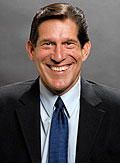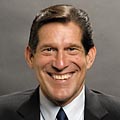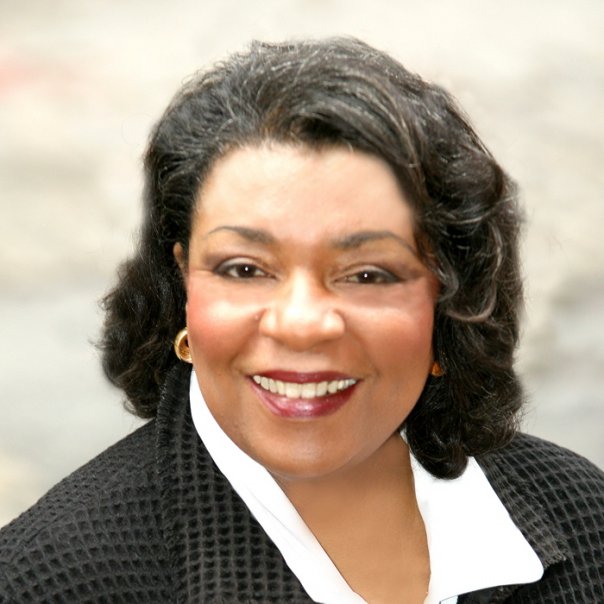This is the second part of a radio interview with Landmark Forum leader David Cunningham about health and well-being. Dr. Steve Wechler of WSYR AM conducts the interview. Here is part one.
Dr. Steve Wechsler: All right. So let’s take a scenario. So someone was an athlete when they were younger, and then they ate a lot. They ate whatever they wanted. As they get older, jobs change, they go to college, they start to gain weight. Where does the conversation start? Do you have this conversation with yourself? Do you have a conversation with a coach or a friend? How would you start a conversation like that?
 David Cunningham: Well, here’s what I would do. I would just take a piece of paper. It’s a simple thing. Take out a piece of paper or open up a file on your computer, and just make two columns, and one column is the facts. “What are the facts about my life?” And the other column is, “What have I added to those facts? What have I made up about it?” So, one column sounds like this. “I weigh 165 pounds. I work eight hours a day. I eat 2,200 calories a day.” That’s what facts sounds like. Here’s what we add to the facts. Things like this. “I’m too tired to exercise. I don’t have enough time. I’m too old. It doesn’t make a difference anyway. It doesn’t matter if I get started because I won’t follow through.” People have decisions like, “I’m not good at following through on things,” and then you can just separate out.
David Cunningham: Well, here’s what I would do. I would just take a piece of paper. It’s a simple thing. Take out a piece of paper or open up a file on your computer, and just make two columns, and one column is the facts. “What are the facts about my life?” And the other column is, “What have I added to those facts? What have I made up about it?” So, one column sounds like this. “I weigh 165 pounds. I work eight hours a day. I eat 2,200 calories a day.” That’s what facts sounds like. Here’s what we add to the facts. Things like this. “I’m too tired to exercise. I don’t have enough time. I’m too old. It doesn’t make a difference anyway. It doesn’t matter if I get started because I won’t follow through.” People have decisions like, “I’m not good at following through on things,” and then you can just separate out.
Where I get started, Steve, is separating out the facts from what you’ve added to the facts. And when you let the facts simply be the facts and separate out what you’ve added, you’ll be able to see that really what disempowers you, what holds you back, what defeats you are not the facts of your life. It’s what you’ve added to the facts. And when you get what you’ve added really is made up, that it is added, it’s not the truth about your life, that gives people extraordinary power. So that’s where I’d start, is just making a list, separating out the facts from what I’ve added to the facts, and just getting that separated out will make a big difference for people, and it’s an easy place to start. You can do that right now. People could do right now while they’re listening.
Dr. Steve Wechsler: So go over that again. In one column you write –
David Cunningham: One column is the facts. Facts sound like this.” I weigh 185 pounds. I eat 2,200 calories a day. I work eight hours a day. I have three kids.” Okay. That’s what facts sound like. What I’ve added to the facts sounds like this.” I don’t have enough time for exercise. I’m not good at following through on things. I’m not strong anymore.” Those are things that we’ve added to the facts of our life. Another fact would be, “I’m 64 years old.” What I’ve added to the fact is, “I’m too old for this.”
Dr. Steve Wechsler: And that’s in Column 2. The interpretations of the facts.
David Cunningham: That’s right. In Column 2 is, “I’m too old for this.”
Dr. Steve Wechsler: You know, it’s funny. I thought about – people go, “Well, I’m really healthy. I eat salad.” What they add to it is 500 calories of dressing and bacon bits and all this kind of stuff so, yes, in their minds they’re eating healthy but when you look at the facts they might be eating 1,000 calories just in one salad.
David Cunningham: Thank you. Right. Exactly, and if you get that, that would be another whole set of facts that’s really useful is, “What do I eat during the day?” Write and keep a list of that and how many calories that is and over on the other side what I add to those facts would be, “I’m eating good,” or “I’m not eating good,” or “I don’t have time to eat well.” And you’ll see that no matter what you’ve added to the facts it really has nothing to do with your health. What impacts your health are the facts of your life, not what you add to those facts.
Dr. Steve Wechsler: So to change – now, so you have your facts, and then we can actually change the add-ons. We can say, “Well, I’m 64, and, you know, there’s a lot of people who are 64 who are really fit and really healthy and really happy, and I can be one of them.”
David Cunningham: Uh huh. And unless you first identify the part you’ve added on, you’ll never see how much it’s impacting you.
Dr. Steve Wechsler: Absolutely.
David Cunningham: So that’s how come it’s important to see what you’ve added to the facts. If you can’t see it – if you can’t hear yourself say it, you’ll never notice how much it’s impacting you. Now, one thing is you don’t really have to change it, though. You just kinda let it there. It’s fine because you really can’t change what that voice in your head says. What you can do is start new conversations. You don’t have to fight the old ones, argue with the old ones. They’re fine. Just let them be there. Just like you have a right hand, you have a left hand. You don’t have to get rid of your left hand to use your right one. You just let your left hand be there, but then pick up your right hand and use that. Start something new, and that’s when you can start a new conversation about, “Okay. Good. Here’s what’s possible. Here’s what I’m committed to. Here’s what I’m gonna promise today.”
Dr. Steve Wechsler: And then how – All right. You’re having this conversation with yourself. I’ve had many conversations with myself. And then there’s this added part about getting other people involved, which I think is such an important part, whether it’s a Mastermind group working with some other like-minded people, asking a partner to run with you, or even I’ve done some coaching and you get alone with a friend and you’re like, “Okay, this is what I came up with.” So you say, “Hey. I’m writing a list. Why don’t you write a list? Let’s talk about it.” To share that with someone makes you more committed and accountable.
David Cunningham: It is as critical as coming up with the new commitment or the new promise to yourself. Coming up with a new commitment or a new promise can really be like a New Year’s resolution, and we know those don’t last, right? If the New Year’s resolution is about a diet, it lasts till Cinnabon the next day, right?
Dr. Steve Wechsler: [Laughter]
David Cunningham: So New Year’s resolutions don’t work. Here’s what works. Making some kind of new commitment/new promise, and sharing it with other people, and inviting other people into the action with you. People love to contribute. That’s one thing. So everybody has people around them that have some information about nutrition they’d love to contribute. So invite people to contribute to you what they know about nutrition. Invite people. We all have people around us who have particular interests in different physical activities. So invite them to train you in their physical activity you’ve never tried before.
So we all have people around us that would love to contribute to us, and we also have people around us that we could make a difference with. So that if we haven’t started running we’ve got five friends around us that haven’t started running either, and if we invited one of them to go with us, we would have the satisfaction of not only impacting our own health but at the same time contributing to another. And that is really satisfying.
Dr. Steve Wechsler: So I’m talking with David Cunningham, communication expert from Landmark Education. David’s going to be on with us for the second half of the show with some other guests. For more information about Landmark Education, you can go to www.LandmarkEducation.com. It’s a wonderful organization. I just went through their program about a month ago, and I learned things. I’ve been doing personal development work on myself for probably around 25 years, and as much work as we do, it’s always great to come at things from another angle. And this angle of, “What kind of conversation are you having with yourself?” is such a powerful thing that happened in my life.
We’re going to be talking in the second half of the show with MaryKay and Nina, who have looked into the conversations they were having in their life, and saw that through changing their conversations, how the growth and potential changed in their lives.
Stay tuned for part three of the interview.




2 comments
[…] Here is the next part of the interview. […]
Thanks very much for this. As someone who did the EST training many years ago its great to come back and get grounded in this work. I appreciate the opportunity this site provides – thanks for creating it.